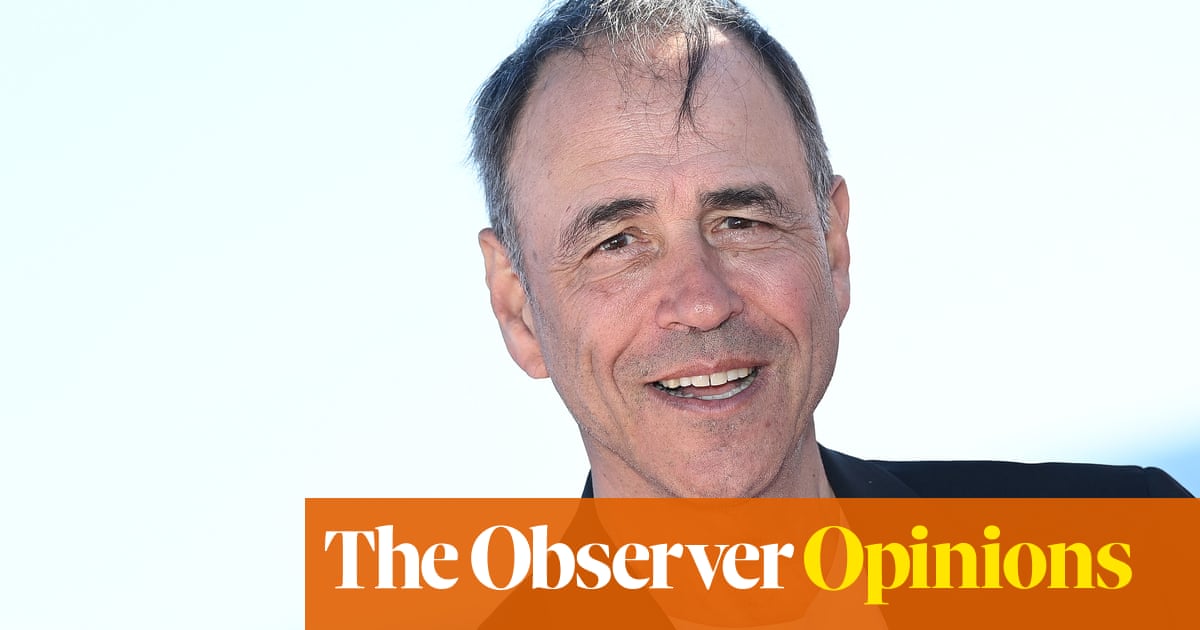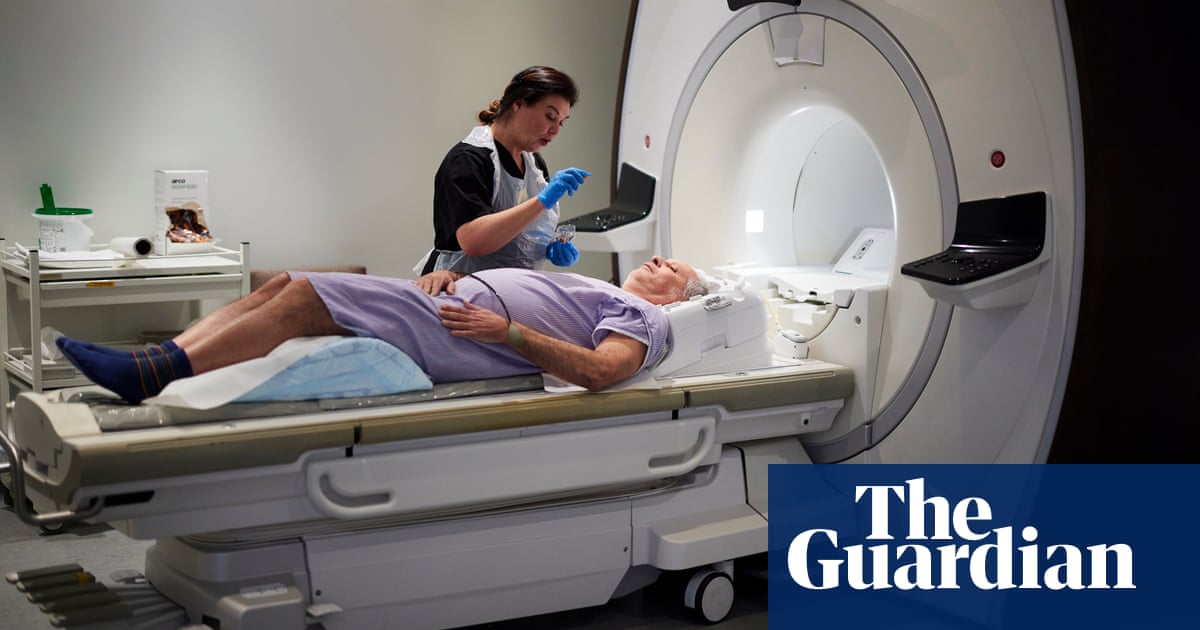
Brian May has been up to his neck in it, and he is fed up. We are talking a little more than a week after we were meant to, our initial chat having been postponed because the basement of May’s London home was filled with effluent after torrential rain caused the capital to flood and sewers to spew forth their contents.
The basement was where he and his wife, the actor Anita Dobson, kept their memorabilia. “It’s made us feel violated,” he says. “It’s what it does to your soul to lose your possessions, to see them swimming about in it. I had to tear up all my old photograph albums, the very first ones I ever had when I was eight years old, to try to save the photographs.” May was born in the outer London suburbs and he’s had a home in London all his life; now he has had enough. “I think London is wrecked,” he says. “It’s brutal, it’s noisy, it’s polluted. Nobody has any consideration. So we’re feeling like we want to get out. That is very wounding: I love London, I grew up here. But I don’t think I can deal with it any more.”
When we speak, May, 74, is engaged, amused and frank, but this is the latest episode in a tough 18 months. Early last summer, he suffered an accident while gardening that tore muscles in his buttocks, and caused a heart attack. It is almost as if we have come around in time: May is reissuing Back to the Light, the solo album he made between 1988 and 1992, another tough period for him. This was when Freddie Mercury, his bandmate in Queen, had become increasingly sicker with Aids-related illnesses, dying in November 1991 of bronchial pneumonia. And that was only the half of it.
“I felt like life was over,” May says of that period. “I was very close to driving off the bridge several times. Very close. It was Hammersmith Bridge.” He laughs, gently. “You can’t drive over it now.”
The whole period of making Back to the Light was one of turmoil, he says. “I lost my dad to cancer around the same time [as Mercury, in 1991]. And my marriage broke up, because I fell in love with another woman [Dobson]. The marriage was probably breaking up anyway, but that was the final catalyst and the breakup was very painful and grisly. I felt like I was losing my kids as well; I felt like I was losing everything. I was just trying to grapple my way around in the darkness, and music was the only thing I could cling to; it was a kind of therapy. On the Back to the Light album you hear me in a very raw state. At the beginning of it we were starting to lose Freddie; in the middle of it we lost him; by the end I was getting accustomed to it. So what you hear is a desperate grasping at a straw that will lead me back to the light.”
When Mercury died, Queen had been a band for 21 years, which seemed like an awfully long time then, although in the elongated music culture of today it seems much less significant (Coldplay released their first single 23 years ago, for comparison). At 44, May was confronted with the possibility that his career was, more or less, done; he accepts that rock history is replete with members of big bands whose solo careers amounted to nothing, and that might well have been his fate.
“I was completely convinced it was over,” he says. “I remember driving past all these arenas that we used to play and thinking: ‘That’s gone. I’ll never do that again.’” With Adam Lambert installed as their live singer for nearly a decade now, Queen still triumphantly tour arenas – a 10-night stretch is booked at London’s O2 next year – but back then, May felt like he was “just a very small person again. I was making my music, but I thought Queen was over and dead and gone for ever.” He and the other members of Queen – Roger Taylor and John Deacon – had never really considered the possibility they might lose Mercury. They assumed that because he was famous, someone, somewhere would come up with a cure.
When Mercury died, “we were completely blown out of the water. We just sat there in disbelief. And we didn’t get over it for a very long time – I’m not even sure we’re over it now – but there was a two-year period where we were grieving and behaving irrationally, almost denying the existence of Queen. I couldn’t bear the thought of being kept in that place. But you do get over it to a point. And now I realise that Queen is in me and I am in Queen, and that can’t change. And we got to the point where it now seems like Freddie is with us. It doesn’t seem like he left any more, because he’s in everything we do. I can never have a single day without thinking about Freddie.”
May these days seems to be one of the grand eccentrics of English rock. He is known for his very public interest in astronomy (in 2007, he finally completed the PhD in astrophysics he had abandoned in favour of Queen decades before); for his love of Victorian stereoscopy (stereo photography, more or less); and for his animal rights campaigning. But they aren’t eccentricities, nor the affectations of a man with too many mansions and money. He has been a lifelong stereoscopy collector, and his father helped him build a telescope as a kid. It all goes way back.
His father helped him build something else, too: his guitar, the Red Special, which the pair built nearly 60 years ago, for a young May enthused by the first wave of rock’n’roll. He had seen Buddy Holly and decided he wanted to be a conductor of that wild lightning. He also thought being a rock’n’roll guitarist might help him meet girls, after he saw a local group playing a dance. “I was petrified of women, of girls, because I went to an all-boys school. And I thought if I was out there, like the band was, I wouldn’t have to worry about chatting up girls; they’re going to come after me. That’s a very elemental thought. Life is about relationships, isn’t it, and love and sex? And the thought of actually pursuing that and not having to worry about my insecurities was very attractive. The guitar was an empowering object. The guitar has always been my voice more than my voice has.”
But it was a very constrained kind of rock stardom that May sought. No drugs, thank you very much (“Sometimes I was envious, but on the whole I thought: no, this is me”), and he didn’t want sexual partners in the fashion of, say, Rod Stewart. “It’s not the way I am. But I did crave intimacy and I wanted to find love. I had a yearning to find the soulmate.”
Having helped his son build the tool for his liberation, May’s father was dismayed when he used it for that precise purpose. “My dad felt that he’d sacrificed a lot in order to give me a good education, to give me the opportunity to get a ‘proper’ job. And he felt I chucked it all away to become a pop star. He thought there was not a snowball’s chance in hell of us getting anywhere, and he was right. The chances were against us. But we had this insane belief, we had some talent, and we were very lucky.”
For 18 months or so, in the early days of Queen, father and son were estranged. “I remember saying to my dad: ‘You helped me do this. You made the guitar with me, for God’s sake, you can’t be that upset about it.’ But he was. He didn’t see it as a life pursuit. He changed his mind eventually, much later.” He finally accepted his son had made the right decision in 1977, when May brought his parents over to New York on Concorde. Father and son shook hands backstage at Queen’s Madison Square Garden show and, in true English fashion, that was the end of the matter.
Nowadays, May is able to work through his insecurities and his irascibilities on his blog, and his Instagram account, which was particularly lively during the lockdowns: Boris Johnson’s handling of the crisis has been “catastrophically wrong”, he noted the other week. (His criticism of Johnson is not new. In 2016, when Johnson suggested Barack Obama’s Kenyan heritage made him unsympathetic to Britain, May tweeted: “Shameful behaviour from Boris Johnson. Betrays a nature being unfit for public office”.)
One thing he doesn’t understand is why Queen continue to find young fans, beyond the fact “we’re just good”, although he accepts that the band’s legacy – films, reissued albums and all – is very carefully attended to. He thinks maybe people see universal truths in songs about ordinary people – I Want To Break Free, or I Want It All – though there’s nothing ordinary about Bohemian Rhapsody, Killer Queen or so many of the songs Queen are most famous for. He surveys his existence for a moment. “It’s not complicated,” he says of the strangest rock band you could ever have dreamed up, the band who could do cod-opera, disco, heavy rock, rockabilly, glam and prog, and have hits with the lot. “It’s just what we do.”












